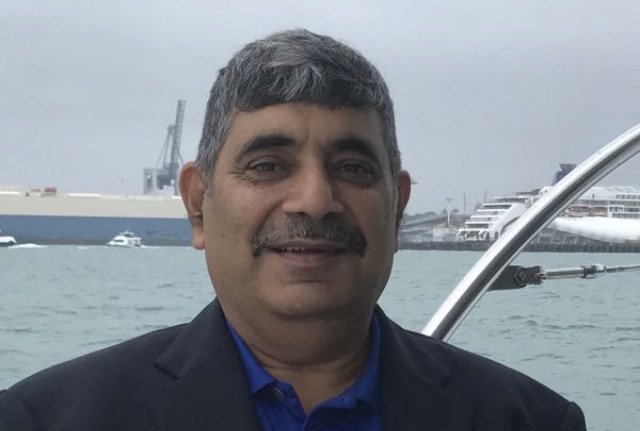Group Nautical: The battle between entrenched attitudes and technology adoption

Bhupesh Gandhi, managing director of brand new Group Nautical, a Singapore maritime tech consultancy, urges readers today in the first Maritime CEO interview of the new year to freshen up their minds and attitudes when it comes to shipping and technology.
Gandhi, whose past career includes stints at maritime tech firms Transas, Maris and Navico, is hosting an inaugural seminar at the Keppel Club in Singapore on January 26 looking at emerging technologies.
“Entrenched attitudes and traditional ways of working, these habits are difficult to change and do not match the pace of change of the technology adoption itself,” Gandhi tells Maritime CEO.
People need to also learn new skills- “learning how to learn,” Gandhi says – which he maintains is not traditionally given the highest priority within shipping.
“Top it up,” he continues, “with the commonly heard excuse of reluctance to adapt as the industry is not doing well. It won’t until we learn to accept and adapt to the reality that is now and be ready for the future.”
Employees who have been for decades working and developing their expertise on a particular set of tasks can suddenly become redundant, Gandhi observes. The technologies often also reduce the workforce in a particular industry. Gandhi says it’s important that people recognise this challenge and prepare themselves adequately for these changes.
“Learning agility amongst people is a key trait, rather than specific technology expertise as the technology itself can get outdated very fast,” he concludes.

Congratulations to Capt Bhupesh for another milestone. Brings out an important point for discussion.
If the size/behaviour or nuances of oceans has not changed , nor has the fundamental method of propelling, steering, anchoring, securing ship has changed isn’t there need to respect and also recognize conventions and traditions followed over the years and proved successful. Capr Bhupesh observation must be correct . But why should seafarers develop this allergy to learning ? Changes on shipboard equipment and practices have been an age old norm and seafarers have been adopting it quite well without bothering people ashore. Be it on bridge, deck machinery, cargo system communication. From their perspective, did they really ask for all that is thrust upon them . Even if technology has provided aids that improves options and precision it could be kept as choice to be exercised by those who want it . It’s like forcing a child to learn cycle in cycling track of Olympic stadium. Poor child for picking skill in simple balancing when riding cycle is now made to struggle balancing while holding cycle and standing.
ECDIS on board is seen as a peril for accidents , though neither does it propel a ship or connected to steering . It’s because the basics of navigation and watch keeping that are necessarily imprinted at all levels from pre sea to Command have been overshadowed with new skills of using an ECDIS .
Take Coconut plucking or swimming in well of villages. You don’t hear of near miss also. But under some industrial guidelines definition of working aloft the poor Anna has to use hydraulic lift. More accidents take place in swimming pools of residential complex and clubs. Some traditions and skills inherited is fundamental to those professions. Under the garb of standardization and human element risk industry first stopped recognizing them then undermining it’s importance. And the new development is embarrass them in public. It’s time we pause and check what’s really needed in training instead of designing more and more compulsory training modules.